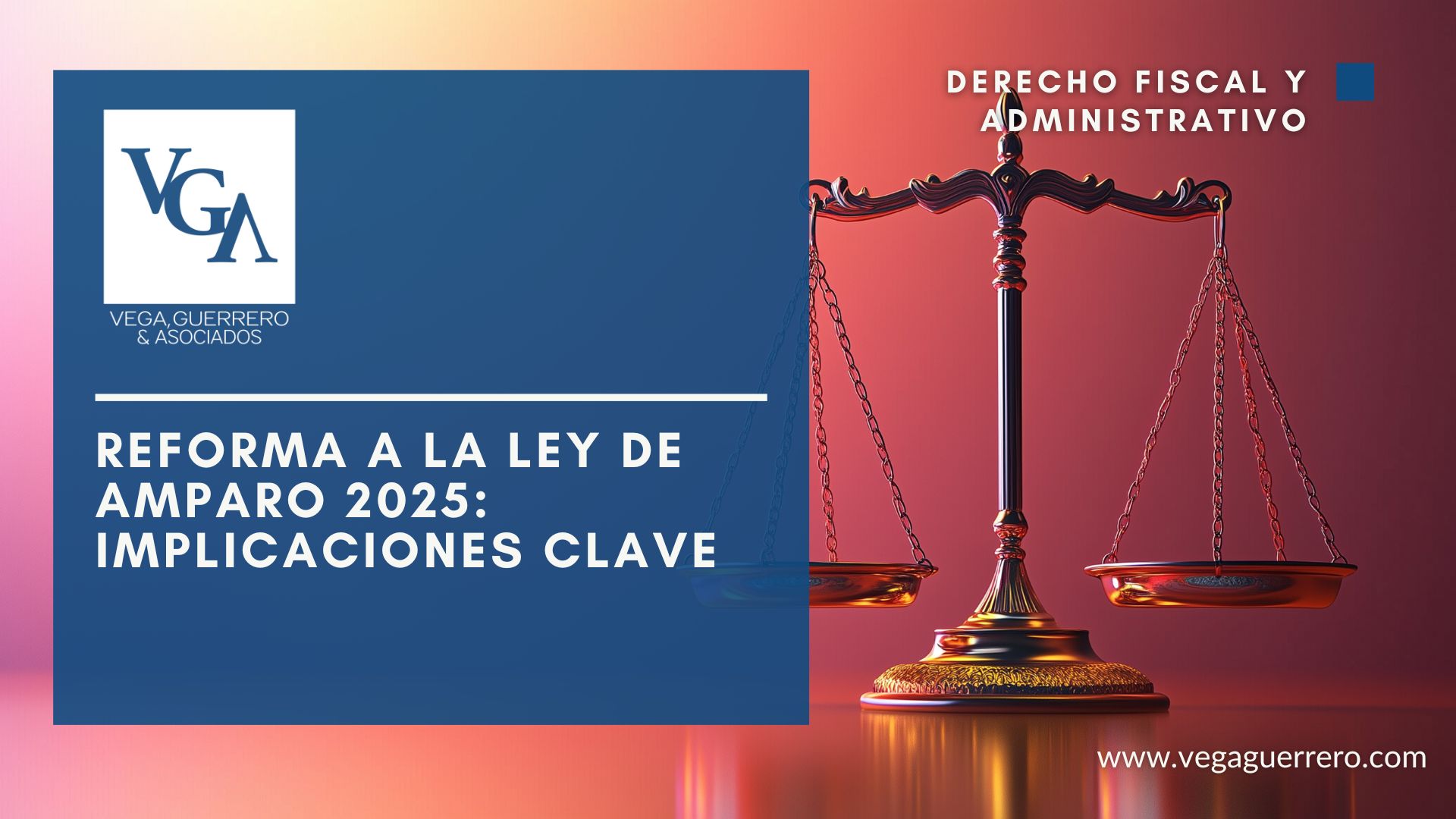On September 15, 2025, the President’s Office of the Republic presented to the Chamber of Deputies an initiative for a profound reform of the Amparo Law, which seeks to update criteria on suspension, legitimate interest, digitalization and coordination with other procedural laws. The bill also harmonizes provisions with the Federal Tax Code (CFF) and the Organic Law of the Federal Court of Administrative Justice (TFJA), directly impacting tax defense and the scope of contentious lawsuits.
These modifications respond to three main objectives:
- To close litigation spaces, especially in the area of suspension of acts related to public interest (UIF, public debt, concessions).
- Modernize the processing of procedures through the mandatory use of electronic media and digital signature.
- Strengthen tax collection, limiting appeals and appeals against final tax credits.
Legitimate interest and access to amparo
- Stricter definition: injury must be real, actual and differentiated, with certain and direct benefit for the plaintiff.
- The possibility of using amparo for strategic purposes is limited.
Suspension of the challenged act
- UIF and list of blocked persons: Provisional suspension is not applicable in amparo proceedings against acts related to these items and the suspension will be definitive and limited to resources of lawful origin and preservation of a “vital minimum”.
- Permits and concessions: It will be improper to grant the suspension if the measure would allow the continuation of activities without authorization in force.
- Public debt: It is recognized as a priority social interest, preventing suspensions that hinder its compliance.
- General rules: It is reiterated that the suspension will never have general effects.
Digitization and procedural management
- Mandatory for all authorities (including legal entities that carry out acts of authority) to register in the Online Services Portal.
- Electronic notifications by default to authorities and parties with institutional profile.
- The Electronic Signature is granted equivalent effects to the autograph.
- The constitutional hearing must be held within 30 days (extendable for another 30 days).
- The extension of the claim and the admission of evidence out of time are restricted.
Enforcement of judgments
- Before sanctioning, the judge must verify the competence and powers of the obligated authority.
- There will be no fines if legal or material impossibility to comply with the resolutions is proven.
- Fines will be imposed on the organ and not on the incumbent in the scenario of noncompliance with judgments, which produces a release from liability for officials in the event of noncompliance (discouraging noncompliance).
- A new infraction is established: failure to process or forward the claim on time.
Tax matters and TFJA
- The protection against the execution or collection of final tax credits may only be filed until the auction is called.
- It is prohibited to use the recourse of revocation against acts related to firm credits.
- The LOTFJA is adjusted to close areas of repetitive litigation and strengthen coordination with the SAT and enforcement authorities.
- Objective: to guarantee certainty and firmness in collection, limiting delays via amparo, which will require better litigation strategies.
At Vega, Guerrero & Asociados, we can advise you and defend your interests considering the implications of these new provisions in case they are approved.




